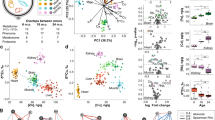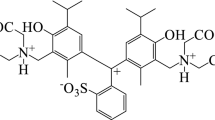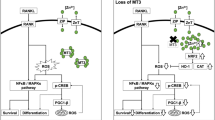Abstract
Metallothioneins (MT), small molecular weight metal binding proteins are known to play an important protective role against heavy metal toxicity, either as antioxidants or pre-oxidants. However, the mode of metabolic fate of MTs in various metal complexes is not clearly understood. This study was carried out to better understand the mode of selective turnover rate of various form of MT in complexes with different metals. The degradation of in vitro translated mouse 35S-cysteine-MT was examined in lysosomal or cytosolic fractions from mouse liver by gel electrophoresis and autoradiography. Overnight incubations of MT showed extensive proteolysis in the lysosomal fraction but not in cytosolic fractions. However, Cu2+-MT was found to be stable under the same experimental condition. In contrast, Zn did not interfere with MT degradation. These results suggest that lysosomes are chiefly responsible for MT removal and appears to be selective on the metals involved in the MT complex. In vitro, translated, radiolabeled MT provides a suitable substrate for investigating the characteristics of MT degradation.
Similar content being viewed by others
Article PDF
Author information
Authors and Affiliations
Rights and permissions
This is an Open Access article distributed under the terms of the Creative Commons Attribution Non-Commercial License (http://creativecommons.org/licenses/by-nc/3.0/) which permits unrestricted non-commercial use, distribution, and reproduction in any medium, provided the original work is properly cited.
About this article
Cite this article
Hahn, S., Yoo, O. & Gahl, W. Effect of metal ions on the stability of metallothionein in the degradation by cellular fractions in vitro. Exp Mol Med 33, 32–36 (2001). https://doi.org/10.1038/emm.2001.7
Published:
Issue date:
DOI: https://doi.org/10.1038/emm.2001.7
Keywords
This article is cited by
-
Garlic (Allium sativum) and Fu-ling (Poria cocos) mitigate lead toxicity by improving antioxidant defense mechanisms and chelating ability in the liver of grass carp (Ctenopharyngodon idella)
Ecotoxicology (2021)
-
Metallothionein-3 as a multifunctional player in the control of cellular processes and diseases
Molecular Brain (2020)
-
Probing structural changes in the α and β domains of copper- and silver-substituted metallothionein by emission spectroscopy and electrospray ionization mass spectrometry
JBIC Journal of Biological Inorganic Chemistry (2007)
-
Clinical significances of the expression of metallothionein in five types epithelium cell cancer
Chinese Journal of Cancer Research (2006)



